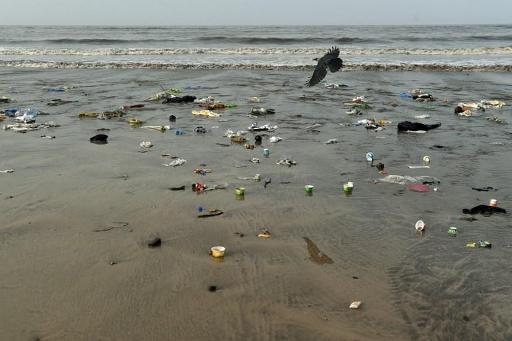Microplastics sent into the air by road traffic pollute the world’s oceans as much as those swept along by rivers, according to the results of modellings published this week.
Many researchers have documented the presence of microplastics in all forms throughout the world - in oceans, as far deep as the Mariannas Trough, the greatest ocean depth, and on land, up to the highest glaciers.
As the production of plastics continues unabated, a new study published in Nature Communications attempts, for the first time, to estimate the quantity of plastic that is produced by road traffic - for example by the rubbing of tyres on the road and the use of brakes – before being spread by air and deposited elsewhere.
The researchers assessed the quantity of these particles, some of which, like ethylene and propylene, are derived from the oil industry and are produced by road traffic, combined with simulations of atmospheric traffic.
They found that one-third of air-borne microplastics generated on the road (about 50,000 tonnes, with a range of uncertainty between 40,000 and 100,000 tonnes) end up each year in the ocean, compared to 65,000 tonnes of microplastics that rivers dump into the sea, although they noted that there was a shortage of field data to back up their models.
This air-borne pollution source, which has been underestimated and even bypassed, has the same impact on the pollution of the oceans by microplastics as river-borne pollution, Nikolaos Evangeliou of the Norwegian Institute for Research on the Air told French news agency AFP.
Microplastic emissions from road traffic come mainly from North America, Europe and Southeast Asia. The study shows that a great deal of this air-borne pollution can end up in the Arctic, where the coloured particles, which absorb more of the sun’s rays than white snow, could have an impact on the melting of the ice.
The Brussels Times

